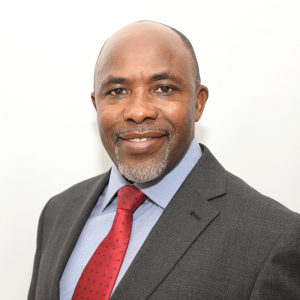STATEMENT BY THE UN RESIDENT COORDNATOR, MR. GEORGE WACHIRA ON WORLD AIDS DAY GEGE INKHUNDLA, 1ST DECEMBER 2022
I am delighted to be among you today in the community of Gege in the Shiselweni Region to commemorate World AIDS Day under the theme, Equalize: Eswatini ending AIDS once and for all.
It is particularly exciting to leave the capital city, experience the countryside and learn more about the people of Eswatini.
The commemoration of the World Aids Day in these settings is also a magnificent way to recognise and acknowledge the important role played by communities in the response to HIV and AIDS.
Communities have been very instrumental in the fight against HIV, and one of our biggest milestones in the HIV response – the reduction of the cost of ARV – was achieved due to communities in Southern Africa mobilizing and advocating on this issue.
I therefore commend the Government of Eswatini, NERCHA, and the UN inter-agency programme on HIV and AIDS (UNAIDS), for ensuring that World AIDS campaign is commemorated with the participation of communities in all the regions of the country as a buildup to today’s main observance.
The Kingdom of Eswatini has come a long way in the fight against HIV and AIDS and I would like to congratulate the Government, civil society, NGOs and all Emaswati for achieving the UNAIDS treatment and suppression targets of 95-95-95 in 2020. In 2022, and as announced by the Minister of Health at the launch of the WAD campaign, Eswatini now stands at 94-96-97. However, we know that this impressive achievement has not been enough to the end of the HIV in the Kingdom.
The theme for this year’s commemoration -Equalise – is an opportunity for us to reflect on the structural inequalities and all other hurdles that are blocking progress towards ending HIV/AIDS.
We acknowledge the impact of the COVID-19 pandemic in the last 2 years which has reversed many development gains, deepened inequalities, and undermined the global efforts to end AIDS by 2030. While COVID came as a natural calamity that we could not do much about, there are other calamities that are fuelling HIV/AIDS which we could do something about.
Last week, we launched the annual 16 Days of Activism Against Gender-Based Violence (GBV) amidst a sense of near-despair that we are losing that fight.
We cannot afford to despair and, instead, the spiralling scourge of GBV should shock us to come together, more strongly, more passionately, to push for the transformation of gender relations for the benefit of our society.
Without tackling head-on, the structures and unequal relations that drive violence against women and girls in our societies, we shall not succeed in our battle to end AIDS, as GBV contributes, almost directly, to new HIV infections, especially among young girls aged 15-24 years.
Statistics show that 1 out of 3 girls in Eswatini experience some form of sexual abuse by the age of 18, while teenage pregnancy remains a major challenge for adolescent girls in Eswatini.
Currently the adolescent birth rate stands at 87 per 1000 adolescents, and teenage pregnancy is one of the main factors contributing to school dropouts in the country.
Intergenerational sex has been said to be the leading driver of new infections among adolescent and young girls everywhere, including in Eswatini.
Having our women battered at home and our girls drop out of school and taken advantage of by older men, are among the inequalities that perpetuate the spread of HIV and deter our efforts to end AIDS by 2030.
We all must be actors in transforming our communities for the better. We men, in particular, must take the responsibility to educate and discourage older men from marrying young girls, at times forcing them to drop out of school.
By marginalising and oppressing our women and girls, we not only perpetuate inequalities, but we will also be destroying our societies.
Nearly a hundred years ago, our very own African and Ghanaian educationist, James Kwegyir Aggrey, bequeathed us the ageless wisdom that, "The surest way to keep a people down is to educate the men and neglect the women. If you educate a man, you educate an individual; but if you educate a woman, you educate a whole society.” We truly must believe in and act by this wisdom for the betterment of our societies!
A few months ago, the Government of Eswatini, with support from the UN family, launched the Education Plus Initiative – an advocacy campaign to keep adolescent girls and boys in school as a way of protecting them from contracting HIV. Evidence shows that keeping girls in school reduces new HIV infections.
As the UN Family, we join this World AIDS Day commemoration with the message that we cannot end AIDS without ending the inequalities, violence and deprivations that are driving it.
The “equalize” slogan is therefore a call to action.
Ending inequalities that perpetuate the spread of AIDS Yindzaba yetfu sonkhe.
I thank you.








